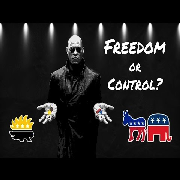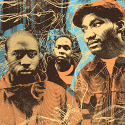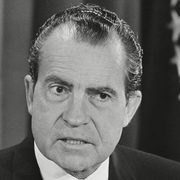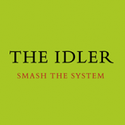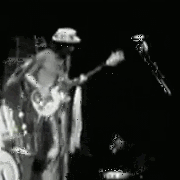|
Just wanted to say that Bad Samaritans is an excellent book, in part because Ha-Joon Chang's not afraid to take capitalist criteria for successful economies and prove that unfettered capitalism does not even succeed on its own terms. For anyone who is looking for a basic explanation of how global capitalism is terrible, with recent economic examples, go pick it.
PsychoInternetHawk fucked around with this message at 18:47 on Jun 3, 2011 |
|
|
|

|
| # ? Apr 18, 2024 18:22 |
|
One of the great economic pieces that I highly recommend to anyone is "The General Theory of Employment, Interest and Money" by John Maynard Keynes. He's the most influential economist of the 20th century, both in shaping economics as a study and in influencing public policy. Highly recommended for any reading list containing serious economics. I can also recommend quite a few works of international relations theory. My favorite is an article entitled "Anarchy is what States Make of it: The Social Construction of Power Politics" by Alexander Wendt, which is a good introduction into constructivist international relations theory. And to provide balance, there's also the neo-liberal "After Hegemony: Cooperation and Discord in the World Political Economy" by Robert Keohane and the realist "The Tragedy of Great Power Politics" by John J. Mearsheimer. All of these provide a pretty good variety of viewpoints if one wants to read more about international relations theory. Knowing theory is always useful for someone interested in international relations. Read all three. Democrazy fucked around with this message at 18:53 on Jun 3, 2011 |
|
|
|
Dr. Tough posted:If this isn't limited to modern history, I recently read A Distant Mirror which is about medieval history, specifically the 14th century, and thought it was pretty good. It deals with the horrifying calamities that visited Europe during that century but also goes into a lot of detail about medieval society itself. It doesn't have any Marxism in it, so I don't know if that's in opposition to the theme you've got going or not. My humanities teacher lent me this book when I was a freshman in high school and I spent the next 10 years looking for another copy of it until I was randomly going through the book section of a salvation army store in Bristol, Connecticut and found it on sale for a dollar. To expand a little more on the summary above, the book follows the life of Enguerrand VII, Lord of Coucy, mostly because of his unique position as both one of the most powerful lords in France and the son in law of the King of England. It also gives a good account of the Black Plague and the Hundred Years War, the Papacy moving to Avignon, etc. It was probably the book that got me really interested in history in general.
|
|
|
|
Creative Destruction: How Globalization is Changing The World's Cultures Cogent Libertarian defense of freetrade and neoliberal economic theory. :http://www.amazon.com/gp/product/0691117837?ie=UTF8&tag=marginalrevol-20&linkCode=as2&camp=1789&creative=9325&creativeASIN=0691117837 In Praise of Commercial Culture: http://www.amazon.com/gp/product/0674001885?ie=UTF8&tag=marginalrevol-20&linkCode=as2&camp=1789&creative=9325&creativeASIN=0674001885
|
|
|
|
Ghost Wars: The Secret History of the CIA, Afghanistan, and bin Laden, from the Soviet Invasion to September 10, 2001quote:Steve Coll's Ghost Wars: The Secret History of the CIA, Afghanistan, and Bin Laden, from the Soviet Invasion to September 10, 2001 offers revealing details of the CIA's involvement in the evolution of the Taliban and Al Qaeda in the years before the September 11 attacks. From the beginning, Coll shows how the CIA's on-again, off-again engagement with Afghanistan after the end of the Soviet war left officials at Langley with inadequate resources and intelligence to appreciate the emerging power of the Taliban. He also demonstrates how Afghanistan became a deadly playing field for international politics where Soviet, Pakistani, and U.S. agents armed and trained a succession of warring factions. At the same time, the book, though opinionated, is not solely a critique of the agency. Coll balances accounts of CIA failures with the success stories, like the capture of Mir Amal Kasi. Coll, managing editor for the Washington Post, covered Afghanistan from 1989 to 1992. He demonstrates unprecedented access to records of White House meetings and to formerly classified material, and his command of Saudi, Pakistani, and Afghani politics is impressive. He also provides a seeming insider's perspective on personalities like George Tenet, William Casey, and anti-terrorism czar, Richard Clarke ("who seemed to wield enormous power precisely because hardly anyone knew who he was or what exactly he did for a living"). Coll manages to weave his research into a narrative that sometimes has the feel of a Tom Clancy novel yet never crosses into excess. While comprehensive, Coll's book may be hard going for those looking for a direct account of the events leading to the 9-11 attacks. The CIA's 1998 engagement with bin Laden as a target for capture begins a full two-thirds of the way into Ghost Wars, only after a lengthy march through developments during the Carter, Reagan, and early Clinton Presidencies. But this is not a critique of Coll's efforts; just a warning that some stamina is required to keep up. Ghost Wars is a complex study of intelligence operations and an invaluable resource for those seeking a nuanced understanding of how a small band of extremists rose to inflict incalculable damage on American soil. If you really, really, REALLY want to understand CIA involvement in Pakistan and Afghanistan during the 70s, 80s, and 90s. This book is impossible to put down.
|
|
|
|
PsychoInternetHawk posted:Just wanted to say that Bad Samaritans is an excellent book, in part because Ha-Joon Chang's not afraid to take capitalist criteria for successful economies and prove that unfettered capitalism does not even succeed on its own terms. For anyone who is looking for a basic explanation of how global capitalism is terrible, with recent economic examples, go pick it. Yeah, I really love Chang's stuff, its very good and works very well. Also, if anyone is curious, he did a talk at the RSA on his 23 Things They Don't Tell You About Capitalism book, well worth a watch. https://www.youtube.com/watch?v=whVf5tuVbus gabushenko posted:Cogent Libertarian defense
|
|
|
|
If anyone actually wants to read about the conservative movement with some historical depth, The Conservative Ascendency by Donald Critchlow is a good overview of the various intersections of political, intellectual and social conservatism. Suburban Warriors by Lisa McGirr is a great read, mostly about the rise of conservatism (from John Birch Society to megachurches) in Orange County. Shakespearean Beef posted:Yeah, I really love Chang's stuff, its very good and works very well. Also, if anyone is curious, he did a talk at the RSA on his 23 Things They Don't Tell You About Capitalism book, well worth a watch. I don't know why it took me this long, but I finally got Bad Samaritans and the first chapter is already excellent.
|
|
|
|
The Politics of Heroin: CIA Complicity in the Global Drug Trade. This is essentially the book on the global drug trade, so if that is your thing you should pick up a copy.
|
|
|
|
Shakespearean Beef posted:Give it a read before you knock it.
|
|
|
|
gabushenko posted:Give it a read before you knock it. I listened to a podcast in which Tyler Cowen invited Ha-Joon Chang to talk about trade and i think Tyler Cowen admitted that Japan was successful with a very restrictive trade policy and heavy handed government subsidies, but was the only country in the world who was successful with that policy... Tyler Cowen isn't really worth listening/reading when it comes to free trade. Edit: I think it was this one: http://chronicle.com/article/Audio-Does-Free-Trade-Favor/126741/
|
|
|
|
 Nice one about CA's prison industrial complex
|
|
|
|
Mister Fister posted:I listened to a podcast in which Tyler Cowen invited Ha-Joon Chang to talk about trade and i think Tyler Cowen admitted that Japan was successful with a very restrictive trade policy and heavy handed government subsidies, but was the only country in the world who was successful with that policy... Tyler Cowen isn't really worth listening/reading when it comes to free trade. thanks for the link, i'll check it out.
|
|
|
|
Alright, everything is up-to-date as of this post. I don't want to get too meta here, but this list is rapidly getting quite large and and some sort of vetting system beyond my fiat will be required. What kind of book should be in the OP? Would you prefer broad or narrow topics? Former LFers: How do you feel about adding liberal or anarchist books to the list? On the one hand, we are no longer allowed to stay in our little lefty posting bubble, but at the same time there are a million liberal reading lists and very few Marxist reading lists. Is there a better way of organizing these headings?
|
|
|
|
TheOtherContraGuy posted:Prison Studies Capitalist Punishment: Prison Privatization and Human Rights Acres of Skin: Human Experiments at Holmesburg Prison Gates of Injustice: The Crisis in America's Prisons Prison Profiteers: Who Makes Money from Mass Incarceration The Rich Get Richer and The Poor Get Prison: Ideology, Class, and Criminal Justice (Here's the companion site and chapter-by-chapter study guide with exercises and resources for student and professor alike) The Color of Justice: Race, Ethnicity, and Crime in America America's Prisons: The Movement Toward Profit and Privatization Lockdown America: Police and Prisons in the Age of Crisis The Perpetual Prisoner Machine: How America Profits From Crime Abolition Democracy: Beyond Prisons, Torture, and Empire The New Jim Crow: Mass Incarceration in the Age of Colorblindness Texas Tough: The Rise of America's Prison Empire Life Sentences: Rage and Survival Behind Bars quote:"...required reading for all fifty United States governors and for all present and future Presidential and Vice-Presidential candidates...the most convincing argument I have read against our nationwide desire to deal with lawbreakers by 'locking 'em up and throwing away the key.'" HidingFromGoro fucked around with this message at 22:18 on Jun 3, 2011 |
|
|
|
TheOtherContraGuy posted:Alright, everything is up-to-date as of this post. I don't want to get too meta here, but this list is rapidly getting quite large and and some sort of vetting system beyond my fiat will be required. Make one heading for books by Glenn Beck, one for books by Bill O'Reilly and one to cover all the others. That way I'll know which ones to read.
|
|
|
|
TheOtherContraGuy posted:Alright, everything is up-to-date as of this post. I don't want to get too meta here, but this list is rapidly getting quite large and and some sort of vetting system beyond my fiat will be required. Up to you of course, but I think it makes sense to stick with the just the classics and most highly rated books for the OP, and good introductory books as well. Otherwise it'll just end up too long and unwieldy. The categories look pretty good though.
|
|
|
|
TheOtherContraGuy posted:Alright, everything is up-to-date as of this post. I don't want to get too meta here, but this list is rapidly getting quite large and and some sort of vetting system beyond my fiat will be required. I think your list should stay oriented around its intent, it's already going to become very large. If posters of other leanings want to maintain their own lists they can do so and you can link to them in the OP. e: and I agree to stick to the classics and most highly rated books for the OP.
|
|
|
|
TheOtherContraGuy posted:Heh, I was just about to go searching for your list to fill out the section. Thanks. It's as good a name as any. "Penology" is the formal name, I usually use "prison studies" or "prison issues."
|
|
|
|
TheOtherContraGuy posted:Former LFers: How do you feel about adding liberal books to the list? Charge them a fee.
|
|
|
|
Witness by Whittaker Chambers The Gulag Archipelago by Aleksandr I. Solzhenitsyn White Guilt: How Blacks and Whites Together Destroyed the Promise of the Civil Rights Era The Flipside of Feminism The Decline of the West The Spirit Level Delusion: Fact-checking the Left's new theory of everything
|
|
|
|
Fiction: War With The Newts by Karel Čapek. Humans enslaves newts and they rebel and goes to war with humanity. In the book Čapek addresses several political issues at the time that the novel was written (1936). German scientists claims that their newts are superior and demand that they should be given lebensraum and in America newts are lynched because they are accused of raping human.
|
|
|
|
|
Snowdon is listed as an Adjunct Scholar at the Democracy Institute, a conservative think-tank based in London and Washington with ties to the conservative Cato Institute. Another publication produced under the imprint of the Democracy Institute by John Luik on "why graphic warnings don't work" (in reducing tobacco consumption) was acknowledged as being "made possible by funding provided by Imperial Tobacco Group PLC". On a first look this comes across as pretty legitimately suspect. Im all for wealth (the book claims the spirit level is "anti-wealth" lol) but I the spirit level is about recognizing that we are currently entering levels of inequality compared to just before/during the great depression ffs and this has empirical harms. Its about recognizing that staggering levels of inequality start to harm rich people as well. You end up spending a great deal of property and money defending your own property and live in exclusion. It causes more stress. Travel to Bolivia where the wealth inequality is astounding. Take a look around gated communities (or just outside of them- I can take you around North Atlanta to South Atlanta if you would like). Sexual Personae by Camille Paglia. http://www.amazon.com/Sexual-Personae-Decadence-Nefertiti-Dickinson/dp/0679735798/ref=sr_1_1?s=books&ie=UTF8&qid=1307145013&sr=1-1 You really all have to read this book. It reads like a punch in the face and by the end you will have a very strong opinion of it I am sure lol. Lemonus fucked around with this message at 00:53 on Jun 4, 2011 |
|
|
|
Fiction: Main Street (Sinclair Lewis). Small town politics. Forcing change versus reticence to change. Group mentality, prejudices and outsiders. It doesn't really tackle any grand themes, but absolutely nails rural America, then (and now).
|
|
|
|
FizFashizzle posted:Ghost Wars: The Secret History of the CIA, Afghanistan, and bin Laden, from the Soviet Invasion to September 10, 2001 Excellent, excellent book. I would also recommend Coll's other book, "The Bin Ladens" as an in depth look at the personal history of Osama bin Laden and how his family came into power in Saudi Arabia. I would also recommend "Guests of the Ayatollah: The First Battle in America's War with Militant Islam" by Mark Bowden(author of "Blackhawk Down". It's a very good book on the Iranian Hostage crisis and background into Iranian-US relationship.
|
|
|
|
In addition to HidingforGoro's list, Prisongate (I know, I know) by David Ramsbotham is a good look at the UK prison system. He's a former head prisons inspector, and while it doesn't go into great detail about the nitty gritty of prison life, it is great for an examination of attitudes towards prisons, rehabiliation vs. punitive measurements (in particular he compares military prisons to civilian prisons) and the struggles he had in getting even the slightest prison reforms achieved under the supposedly liberal Labour government.RC and Moon Pie posted:Fiction: Main Street (Sinclair Lewis). Small town politics. Forcing change versus reticence to change. Group mentality, prejudices and outsiders. It doesn't really tackle any grand themes, but absolutely nails rural America, then (and now). Winesburg, Ohio is similar to this (in themes at least), looking at a slightly earlier period of American life (Sherwood Anderson was also a big influence on F. Scott Fitzgerald, Hemingway and Steinbeck). edit: TheOtherContraGuy posted:Former LFers: How do you feel about adding liberal or anarchist books to the list? On the one hand, we are no longer allowed to stay in our little lefty posting bubble, but at the same time there are a million liberal reading lists and very few Marxist reading lists. For anarchist texts, I'd say Demanding the Impossible: A History of Anarchism by Peter Marshall should be, like, the first place anyone should start. Really excellent and in-depth, it starts off with an overview of anarchist theories, goes into the forerunners of anarchism (Taoism, Greeks, Christianity and then general enlightenment thinkers and an overview of general (left)libertarian thoughts and history), gives great overviews of anarchist thinkers from Godwin to Gandhi, looks at anarchism in action all over the world, and then continues with modern anarchist theories until about the present day. I'll try to get a list of classic anarchist texts together later, but that is the book I'd recommended anyone to start with. e2: uhh just re-read your post. I'm presuming you meant 'liberal and libertarian,' not 'liberal and anarchism' unless I'm misunderstanding you. Tegan and Sankara fucked around with this message at 15:39 on Jun 4, 2011 |
|
|
|
Michel Foucalt's "The History of Sexuality Vol. 1" is a go-to book for any contemporary feminist thought. In particular, it deals with the debunking of fixed sexuality and that the C19th Repressive Hypothesis, the idea that we are all repressed as a result of the society that came before us. I would also recommend Judith Butler's "Gender Trouble", and Dworkin's "The Second Sex" as a precursor to the previous two thinkers. I would also add "Discipline and Punish" which is again by Foucault and deals with institutions, specifically the prison as an example, and how power and knowledge are distributed throughout these systems to produce norms. On the subject of culture and media, I would recommend "Narrative, Apparatus and Ideology" ed. Philip Rosen, if only for its essay by Jean-Louis Baudry that constructs the Cinematic Apparatus and shows how "outside" ideological imperatives will affect the transmission and distribution of cinema. Each essay deconstructs or critiques a particular aspect of the cinematic language from some of the top contemporary thinkers of the past thirty years. A fantastic read. Furthering this critique of the media and the Real, I would also encourage people to read "The Vital Illusion" by Jean Baudrilliard as it deals with how important sign economies are in creating cultural imperialism. The image and its mediation are more important than what is actually there.
|
|
|
|
I don't know which category this fits in (probably cultural studies) but Civilization and Its Discontents by Sigmund Freud is definitely worth reading. In the book Freud describes how civilization came to be and how the tension between the laws of civilization and our natural urges makes us all permanently discontent.
|
|
|
|
|
As a moderately left person who has been reading it the last few days, I would add Killing Hope to the 'testing the waters' section. It doesn't have any dramatic social prescriptions or flights of theory in it, it just obliterates the mythical history of the US in the Cold War in a comprehensive manner. I think it's very accessible.
|
|
|
|
Schlesinger's The Imperial Presidency does a pretty thorough job of tracing the history of the presidency since Washington and how it repeatedly exceeds its constitutional mandate, especially when it comes to foreign policy. It's already in the OP, but that Abu-Lughod book is probably my favorite history book. It's also pretty accessible. Xandu fucked around with this message at 16:42 on Jun 4, 2011 |
|
|
|
Two recent reads that I can recommend: Capitalism and Freedom - Milton Friedman Landmark survey of classical economic liberalism. Very well written and interesting to read in the context of what has happened since. Eros and Civilization - Marcuse Maps psychoanalysis and Freudian social critique (Civ. and its Discontents) onto a Marxist interpretation of society. Although I recently reread it and found it to be not quite as good as I remembered it.
|
|
|
|
Pedagogy of the Oppressed by Paolo Freire. In this book Freire, inspired by Fanon and Marx, describes how education can be used to oppress someone but also how it can liberate the oppressed.
|
|
|
|
|
If you want to get an excellent (aside from being, to be sure, Eurocentric) crash course in world history from a Marxist viewpoint, I would go for Perry Anderson's Passages from Antiquity to Feudalism and Lineages of the Absolutist State, followed by Hobsbawm's trilogy on the nineteenth century, mentioned above. (I'd include his "Age of Extremes" as well, but it's sufficiently compact, and on a period on which most of us are sufficiently educated, that the new facts per page is drastically lower than for the others.)Xandu posted:It's already in the OP, but that Abu-Lughod book is probably my favorite history book. It's also pretty accessible.
|
|
|
|
Alhazred posted:I don't know which category this fits in (probably cultural studies) but Civilization and Its Discontents by Sigmund Freud is definitely worth reading. In the book Freud describes how civilization came to be and how the tension between the laws of civilization and our natural urges makes us all permanently discontent. I would recommend Lacan's écrit based around this, which is called "The Ethics of Psychoanalysis". It offers a revised interpretation of Freudian psychanalysis, in particular the concept of Juissance. If you are interested in Freud and philosophy, Jacques Lacan is a good writer to consider reading.
|
|
|
|
John_Anon_Smith posted:I would recommend Lacan's écrit based around this, which is called "The Ethics of Psychoanalysis". It offers a revised interpretation of Freudian psychanalysis, in particular the concept of Juissance. If you are interested in Freud and philosophy, Jacques Lacan is a good writer to consider reading.
|
|
|
|
Jon Krakauer is light reading compared to the recommendations here but he has written a couple interesting sociopolitical books that give insight into religious fundamentalism in America (specifically mormonism) and a recent one about Pat Tillman and the govt's media campaign to cover up the reasons for his death. Where Men Win Glory Under the Banner of Heaven
|
|
|
|
I've nearly finished reading The Book of Ammon by Ammon Hennacy and it's pretty good if somewhat rambleing sometimes. Basicly it's the memoir of a militant Socialist turned Anarchist-Pacifist and his fight agaisnt poverty, wars, and capital punishment.quote:"I am a Catholic. I am a pacifist. I am a Christian anarchist. In Russia the enemies of the free worker are the bureaucrats and the communists. In the United States, the enemies of the free workers are the bureaucrats and the capitalists. I don't believe in any government at all, and I am against violence of all kinds" On the same note Shane Claiborne's The Irresistible Revolution is a great book on how modern Christians can live and work to fight capitalisim, poverty, and capital punishment. It's here on Google Books http://books.google.com/books?id=LK...epage&q&f=false War is a Racket by Major General Smedley Butler is a classic anti-imperialist work that, despite its shortness, makes a strong case agaisnt the military industiral complex. Here's the text of it free online also http://www.lexrex.com/enlightened/articles/warisaracket.htm The Mayor of Castro Street ,And the Band Played on, and Conduct Unbecoming all by Randy Shilts. "The Mayor..." focuses on the life and carrer of Harvey Milk, "And the Band..." is a acount on the early AIDS epidemic, and "Conduct..." is about Gays and Lesbians in the US Military. I would reccomend reading them one after the other in the order I posted to get a good sense of gay history in the 1970's and '80's. TheOtherContraGuy posted:Alright, everything is up-to-date as of this post. I don't want to get too meta here, but this list is rapidly getting quite large and and some sort of vetting system beyond my fiat will be required. Speaking only for myself as a 'former LFer' I wouldd love to see anarchist books added to the list (for obvious reasons) aand wouldn't mind liberal, or even a few "coservative" works. Nckdictator fucked around with this message at 02:12 on Jun 6, 2011 |
|
|
|
Brown Moses posted:Can anyone recommend any good books about Turkey? I'm from Turkey. What aspects of the country are you interested in? Economics? Politics? History? Culture?
|
|
|
|
For an introduction to Chomsky's propaganda theory that you can finish in a day, there is Media Control. The book is pocket-sized and many of the chapters are only a few pages, but it provides a clear overview of the dissemination of political propaganda through the US media from WW1 to 9/11. e: I'll add that the Manufacturing Consent documentary does not provide a good overview. To watch it you'd get the impression that Chomsky's criticism is that he, personally, doesn't get time in the media, which is not the case at all. Gazpacho fucked around with this message at 07:34 on Jun 6, 2011 |
|
|
|

|
| # ? Apr 18, 2024 18:22 |
|
I'd add Life: The Movie - Neal Gabler to the media section. Great book.
|
|
|









